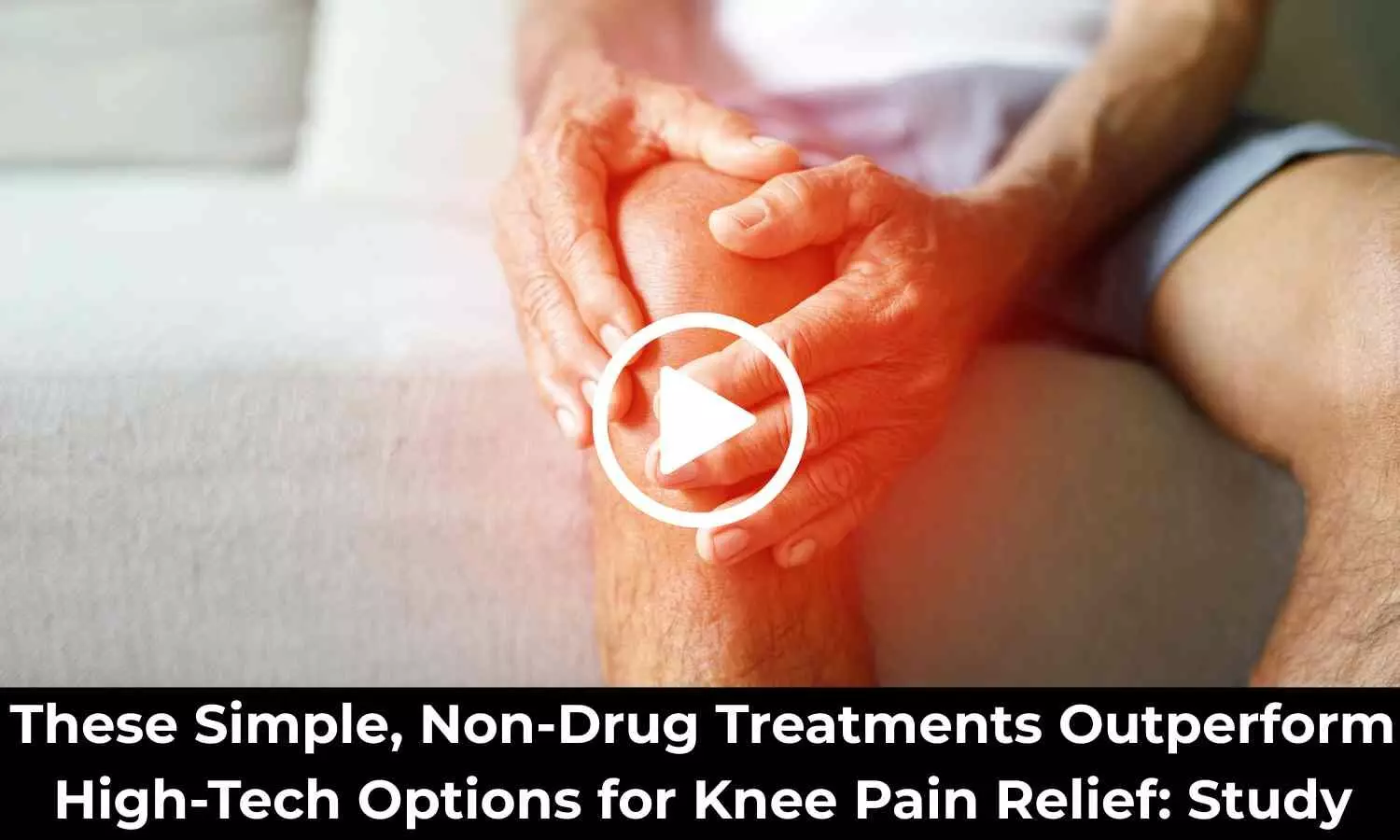These Simple, Non-Drug Treatments Outperform High-Tech Options for Knee Pain Relief: Study Suggests
- byDoctor News Daily Team
- 23 September, 2025
- 0 Comments
- 0 Mins

Knee braces, water therapy, and exercise are the most effective non-drug treatments forknee osteoarthritis, according to a major new study published in the open-access journalPLOS One. The meta-analysis suggests that these simple, accessible therapies outperform more high-tech interventions, offering safer alternatives to medication-based treatment. Knee osteoarthritis (KOA) is a degenerative joint condition affecting millions of older adults, often causing pain, stiffness, and limited mobility. While anti-inflammatory drugs are commonly prescribed, they carry risks of gastrointestinal andcardiovascularside effects. In response, researchers conducted a large-scale analysis to determine which non-drug therapies offer the greatest benefit. The team reviewed 139 clinical trials involving nearly 10,000 participants. The studies examined 12 types of non-pharmacological treatments, including knee braces, insoles, kinesiology tape, hydrotherapy, exercise, laser therapy, electrical stimulation, shock wave therapy, and ultrasound. By using a network meta-analysis, which combines and compares data across multiple studies, the researchers ranked the treatments based on their effectiveness in reducing pain, improving physical function, and relieving stiffness. Knee braces ranked highest in nearly all categories, followed closely by hydrotherapy — therapeutic exercises performed in warm water — and general physical exercise. “Knee braces, hydrotherapy, and exercise are the most effective non-drug therapies for knee osteoarthritis. They reduce pain and improve mobility without the gastrointestinal or cardiovascular risks linked to common pain medications. Patients and clinicians should prioritize these evidence-based options,” the authors noted. Other interventions, such as high-intensity laser therapy and shock wave therapy, showed moderate benefit, while ultrasound was consistently the least effective. The researchers acknowledged limitations in their analysis due to variability in study design, treatment duration, and sample sizes. They call for future research to assess the cost-effectiveness of combined therapies. Reference:Xiao Chen, Yuanhe Fan, Hongliang Tu, Yuan Luo. Clinical efficacy of different therapeutic options for knee osteoarthritis: A network meta-analysis based on randomized clinical trials. PLOS One, 2025; 20 (6): e0324864 DOI: 10.1371/journal.pone.0324864
Disclaimer: This website is designed for healthcare professionals and serves solely for informational purposes.
The content provided should not be interpreted as medical advice, diagnosis, treatment recommendations, prescriptions, or endorsements of specific medical practices. It is not a replacement for professional medical consultation or the expertise of a licensed healthcare provider.
Given the ever-evolving nature of medical science, we strive to keep our information accurate and up to date. However, we do not guarantee the completeness or accuracy of the content.
If you come across any inconsistencies, please reach out to us at
admin@doctornewsdaily.com.
We do not support or endorse medical opinions, treatments, or recommendations that contradict the advice of qualified healthcare professionals.
By using this website, you agree to our
Terms of Use,
Privacy Policy, and
Advertisement Policy.
For further details, please review our
Full Disclaimer.
Recent News
Japanese researchers suggest cheese consumption ma...
- 30 October, 2025
Obesity-linked cancer cases rising among young and...
- 30 October, 2025
Plant-based diets may reduce climate change and in...
- 30 October, 2025
Cutting Balloon Angioplasty Before Stenting Found...
- 30 October, 2025
Daily Newsletter
Get all the top stories from Blogs to keep track.


0 Comments
Post a comment
No comments yet. Be the first to comment!